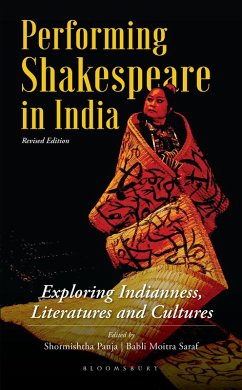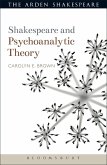This book is envisaged as an intervention in the ongoing explorations in social and cultural history, into questions of what constitutes Indianness for the colonial and the postcolonial subject and the role that Shakespeare plays in this identity formation.
Performing Shakespeare in India presents studies of Indian Shakespeare adaptations on stage, on screen, on OTT platforms, in translation, in visual culture and in digital humanities and examines the ways in which these construct Indianness. Shakespeare in India has had multiple local interpretations in different media and equally wide-ranging responses, be it the celebration of Shakespeare as a bishwokobi (world poet) in 19th-century Bengal, be it in the elusive adaptation of Shakespeare in Meitei and Tangkhul tribal art forms in Manipur, or be it in the clamour of a boisterous Bollywood musical. In the response of diasporic theatre professionals, or in Telugu and Kannada translations, whether resisted or accepted with open arms, Shakespeare in India has had multiple local interpretations in different media. All the essays are connected by the common thread of extraordinary negotiations of postcolonial identity formation in language, in politics, in social and cultural practices, or in art forms.
Performing Shakespeare in India presents studies of Indian Shakespeare adaptations on stage, on screen, on OTT platforms, in translation, in visual culture and in digital humanities and examines the ways in which these construct Indianness. Shakespeare in India has had multiple local interpretations in different media and equally wide-ranging responses, be it the celebration of Shakespeare as a bishwokobi (world poet) in 19th-century Bengal, be it in the elusive adaptation of Shakespeare in Meitei and Tangkhul tribal art forms in Manipur, or be it in the clamour of a boisterous Bollywood musical. In the response of diasporic theatre professionals, or in Telugu and Kannada translations, whether resisted or accepted with open arms, Shakespeare in India has had multiple local interpretations in different media. All the essays are connected by the common thread of extraordinary negotiations of postcolonial identity formation in language, in politics, in social and cultural practices, or in art forms.









